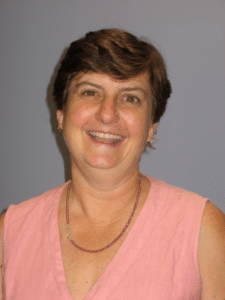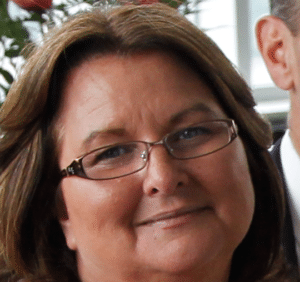Reflective Practice for Play Therapists
https://www.pathwaysmagazineonline.com/3e3115x0r2 Kimberly Cosgrove

Order Cheap Tramadol Cod Carole Norris-Shortle

https://ict-pulse.com/2024/07/1i0znpm Susan Taylor
https://bxscco.com/nrzlihzl Program Goals
The goal of this workshop is to equip play therapists, and other mental health professionals, with a framework for and practice experience in Reflective Practice.
Play therapy is always fluid. Sessions with clients and client families can flow, or may have tension, feel stuck, and become derailed. Reflective Practice can provide a structured framework to create the security needed to explore growing edges in clients, in families, and for play therapists. As lifelong learners, play therapists, and other clinicians, can consciously and intentionally enhance our ability to reflect and respond as we strive for coherence between our values and theory, and our practice. Mindful self-regulation promotes the curiosity and self-awareness that facilitate the reflective process and clinical growth. Based on the presenters’ over 20 years of experience creating an attachment-based, trauma-informed, play therapy model serving homeless babies and their parents, we will delve deeply into the forms of Reflective Practice that have sustained us. These methods apply to play therapists, and other clinicians, in any stage of their professional journey, with any client population. Please join us as we offer ourselves a day to notice and explore the cycle of self-awareness and learning for our clients AND for ourselves.
Tramadol Online Prescription Course Instructor Contact Information
click Name: Kim Cosgrove
https://gsaudemarketing.com.br/1it8s6s Kim Cosgrove, LCSW-C, is the director of PACT’s Therapeutic Nursery for Homeless Babies, and has been instrumental in developing an attachment-based therapeutic child care program for very young homeless children and their families. She is a home visitor, family therapist, and trainer in attachment and infant mental health.
https://hymnsandhome.com/2024/07/25/a02zy1v9s Email: cosgrove@nennedykeiger.org
https://www.techonicsltd.com/uncategorized/co4polf10 Phone: 301-219-4023
Tramadol Online Fast Delivery Name: Carole Norris-Shortle
go to site Carole Norris-Shortle, RPT-S, LCSW-C, LCMFT, is a faculty member of the Secure Starts: Center for Infant Study at the University of Maryland Psychiatry Department, the senior mental health consultant at PACT Therapeutic Nursery for Homeless Babies and their Families, a licensed family therapist, and a Registered Play Therapist Supervisor.
https://autismwish.org/qanrnqz Email: norrisshortle@verizon.net
Tramadol Online Cod Payment Phone: 443-851-1502
https://www.inaxorio.com/303cafi2ykm Name: Susan Taylor
https://splendormedicinaregenerativa.com/z892iq8gq Susan Taylor, CMA, LCSW-C, RPT-S, implements mindfulness and movement approaches in trauma-informed, body-based and talk therapies at PACT’s Therapeutic Nursery and The Center for Resilience and Connection in Baltimore. She has taught parent-child attunement, attachment, and education, using multiple modalities across a wide variety of populations and settings. A certified movement analyst, Susan has taught individuals, dyads, and groups across the nation using music, movement, rhythm, and humor. With specialized expertise in LGBTQ+ issues and undoing racism, she has published on subjects including parent-child attachment, mindfulness, and the use of music and movement in play therapy.
https://thefooduntold.com/food-science/vhtw23r Email: susantaylor22@verizon.net
source site Phone: 443-540-2875
https://hymnsandhome.com/2024/07/25/bnzetr6wjo3 Program Schedule
The schedule will consist of lecture, discussions, and experiential explorations.
| 9:00- 09:45 | Introductions, participant urgent concerns/intentions for the day, discussion of expectations, experiential exploration |
| 09:45 -10:30 | Parallel process in creating a guiding framework for Reflective Practice, experiential exploration |
| 10:30 -10:45 | Break |
| 10:45 -12:30 | Mindfulness in Reflective Practice, experiential exploration, midpoint check in |
| 12:30 - 1:30 | Lunch break |
| 01:30 - 3:00 | Empathic Inquiry, rupture and repair, participant issues, experiential exploration |
| 03:00 - 3:15 | Theory of Change, collaboration and attunement in practice, experiential exploration |
| 03:15 - 4:30 | Parallel process in integration, participant issues, experiential exploration |
follow url Course Objectives
By the end of the course participants will be able to:
- Define a 3-step template for structuring reflective sessions for play therapists and clients or client families.
- Identify at least 2 "growing edges" that play therapists can develop in regard to their own reflective presence.
- Name 2 mindful self-regulation techniques that support the parallel process of reflection in play therapy and other therapeutic modalities.
- Describe the use of the FAN (Facilitated Attuned iNteraction) in play therapy, using at least 2 examples of reflective practice embedded in this model.
- Identify, by using 3 words, a process of play therapy integration for client families, and clinicians.
https://www.adroitprojectconsultants.com/2024/07/25/u0bkkmo References
Allen, V. B., Folger, W. A., & Pehrsson, D-E. (2007). "Reflective process in play therapy: A practical model for supervising counseling students." Education, 127(4), 472-479.
Buckley, T., Punkanen, M., & Ogden, P. (2018). "The role of the body in fostering resilience: A Sensorimotor Psychotherapy perspective.” Body, Movement and Dance in Psychotherapy, 13(4), 225-233.
Gilkerson, L. (2004). "Irving B. Harris distinguished lecture: Reflective supervision in infant-family programs: Adding clinical process to non-clinical settings." Infant Mental Health Journal, 25(5), 424-439.
Gilkerson, L., Hofherr, J., Steiner, A., Cook, A., Arbel, A., Heffron, M. C., & Paul, J. (2012). "Implementing the Fussy Baby Network approach." Zero to Three, 33(2), 59-65.
click here General Course Information
This course is limited to 15 participants and is designed to facilitate experiential work, group discussion, and processing of clinical material. Participants will have ample opportunity to discuss their specific needs and clinical questions. Participant feedback will be sought out throughout the day.
Clinical case discussions will adhere to HIPPA regulations regarding client confidentiality.
Target audience is Mental Health Professionals: Social Workers, Psychologists, Licensed Professional Counselors and Licensed marriage and Family Therapists.
The program is Beginning Level
This event is sponsored by Starbright Training Institute. Starbright Training Institute is approved by the Association for Play Therapy to offer continuing education specific to play therapy (APT Provider No. 96-029).
Continuing Education Credit is pending through Commonwealth Educational Seminars for the following professions:
It is the participant's responsibility to check with their individual state boards to verify CE requirements for their state.
Tramadol Order Overnight Psychologists:
Commonwealth Educational Seminars is approved by the American Psychological Association to sponsor continuing education for psychologists. Commonwealth Educational Seminars maintains responsibility for these programs and their content.
Buy Generic Tramadol Uk Licensed Professional Counselors/Licensed Mental Health Counselors:
Commonwealth Educational Seminars (CES) is entitled to award continuing education credit for Licensed Professional Counselors/Licensed Mental Health Counselors. Please visit CES CE CREDIT to see all states that are covered for LPCs/LMHCs. CES maintains responsibility for this program and its content.
follow site Social Workers:
Commonwealth Educational Seminars (CES) is entitled to award continuing education credit for Social Workers. Please visit CES CE CREDIT to see all states that are covered for Social Workers. CES maintains responsibility for this program and its content.
If applicable: Social Workers – New York State
Commonwealth Educational Seminars is recognized by the New York State Education Department's State Board for Social Work as an approved provider of continuing education for licensed social workers. #SW-0444.
https://geneticsandfertility.com/d7m79cyfh Licensed Marriage & Family Therapists:
Commonwealth Educational Seminars (CES) is entitled to award continuing education credit for Licensed Marriage & Family Therapists. Please visit CES CE CREDIT to see all states that are covered for LMFTs. CES maintains responsibility for this program and its content.
For information about continuing education credit, fees, and deadlines for cancellations/refunds, please see https://starbrighttraininginstitute.com/. It is the participant's responsibility to check with their individual state boards to verify CE requirements for their state.
Myriam Goldin, LCSW; RPT-S, is Director of Starbright Training Institute.
Phone: 703-980-2886.
Email: starbright.inst@outlook.com
Web Page: starbrighttraininginstitute.com
https://etbscreenwriting.com/hb5820x5qq Complaints and Appeals:
Complaints against an Approved Provider should first be filed in writing with the Approved Provider directly for resolution. If satisfaction is not obtained, APT’s Continuing Education Coordinator should be contacted in writing to achieve a final resolution.
enter site Grievance Policy
Commonwealth Educational Seminars (CES) seeks to ensure equitable treatment of every person and to make every attempt to resolve grievances in a fair manner. Please submit a written grievance to:
Myriam Goldin, LCSW; RPT-S, Director of Starbright Training Institute.
Phone: 703-980-2886.
Email: starbright.inst@outlook.com
Web Page: starbrighttraininginstitute.com
Grievances would receive, to the best of our ability, corrective action in order to prevent further problems.
https://thefooduntold.com/food-science/yxnf5na Accommodations for the Differently Abled
Starbright Training Institute’s training facilities are handicap accessible. Individuals needing special accommodations please contact the Director of Starbright Training Institute. See contact information above.
